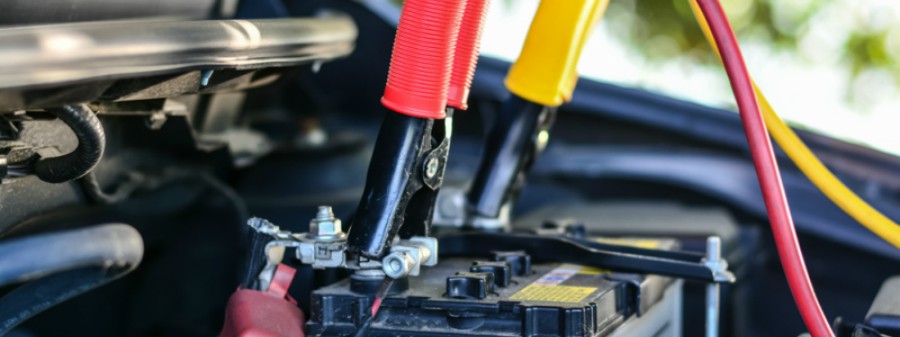Care & Maintenance of your Car Battery


The main purpose of a car battery is to start the engine. An average car uses more than three hundred amperes for a few seconds in order to start a car engine. This is enough electricity to light up over three hundred fluorescent light bulbs. It also provides power for the lighting, audio system and other accessories. Considering its vital function, it is important that you do not take your car battery for granted.
A word of caution when dealing with car batteries – batteries contain sulphuric acid and should always be kept away from skin, clothing and any other material which may become corroded. If contamination occurs, use large amounts of water to neutralise and flush the acid away. Rubber Gloves should always be worn when working with any potentially harmful fluids from your car such as battery acid.
Batteries that are well maintained can last for up to two years. For a battery to be kept in good working order, there are certain preventive measures one can take to ensure that the nightmare of flat batteries does not happen to oneself. Get into the habit of turning off all controls – including lights, the heated rear window and radio before turning off the engine when you leave the car. This will extend the life of the battery and reduce the chances of a flat battery. Another way of improving the lifespan of your battery is to protect the battery from high temperatures inside the engine bay. Due to the way batteries are made and operate, high temperatures cause them to deteriorate faster. In our warm climate, the electrolyte levels need to be checked more frequently as a result of the higher temperatures. Check the battery electrolyte level at least once a week if possible and top up to the required level if necessary. Avoid overfilling as the warm climate increases the chance of overflowing due to expansion of the electrolyte.
The battery terminals and cables should also be checked periodically for corrosion, which if present, should be removed. Battery terminals should also be tight. The battery serves as a filter and regulator in the electrical system of the car and it if it should become disconnected while the engine is on, it could cause extensive and expensive damage to the car. The top of the battery should also be kept clean if possible. One often-overlooked check is the tension of the alternator belt. If the tension of the alternator belt is too slack, the alternator will not charge and this will increase the chances of the battery losing its charge, as the energy it dissipates while in use is not replenished by the charging of the alternator.
Carry out these basic maintenance checks to get the most out of a car battery:
- Check that the battery is securely clamped in position
- See that terminals are clean and securely fastened
- Check that acid level in each cell is about 6mm above the plates
- Top up with distilled water when necessary
- Keep cigarettes and other naked lights well away when checking the battery
When the battery is weak, you will notice that the headlights and the horn are weak, and the vehicle is slow in cranking.
Call 6748 9911 for AA’s 24-hour car battery maintenance service.





